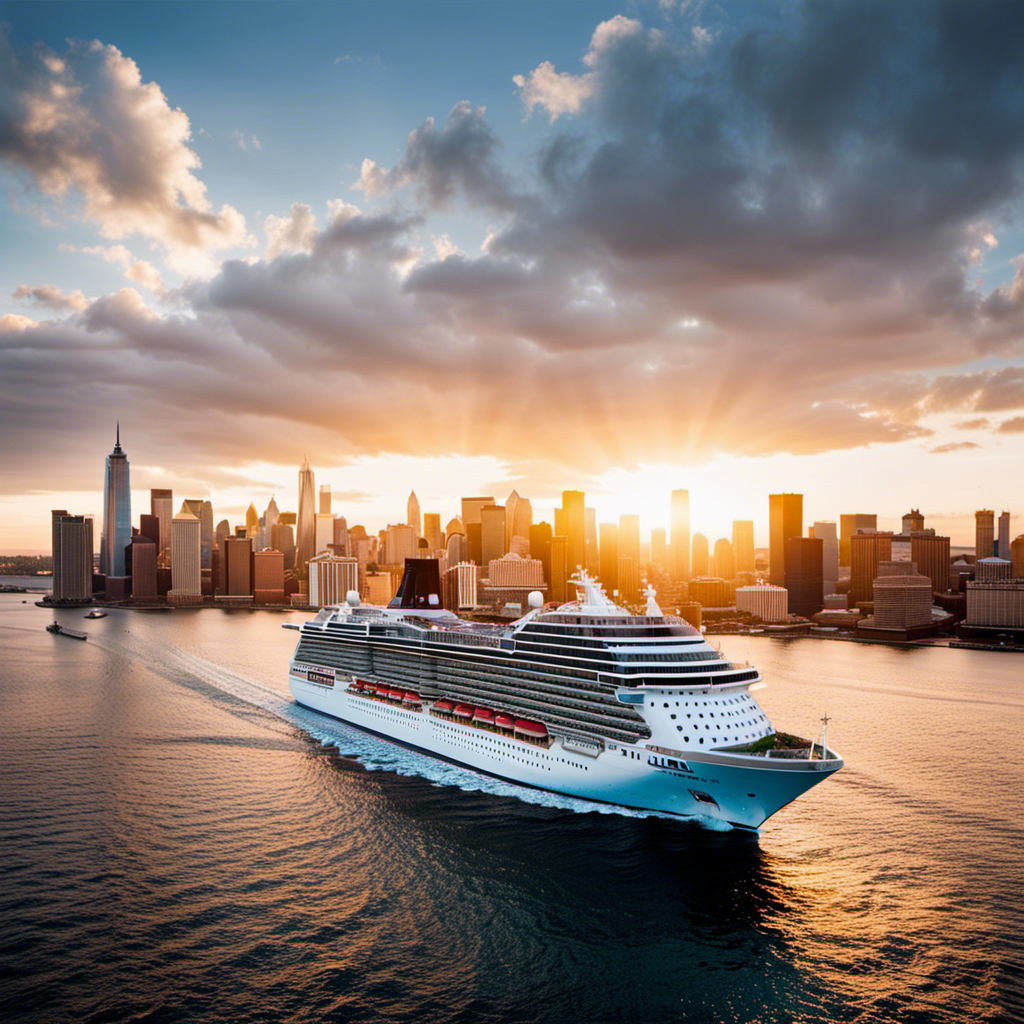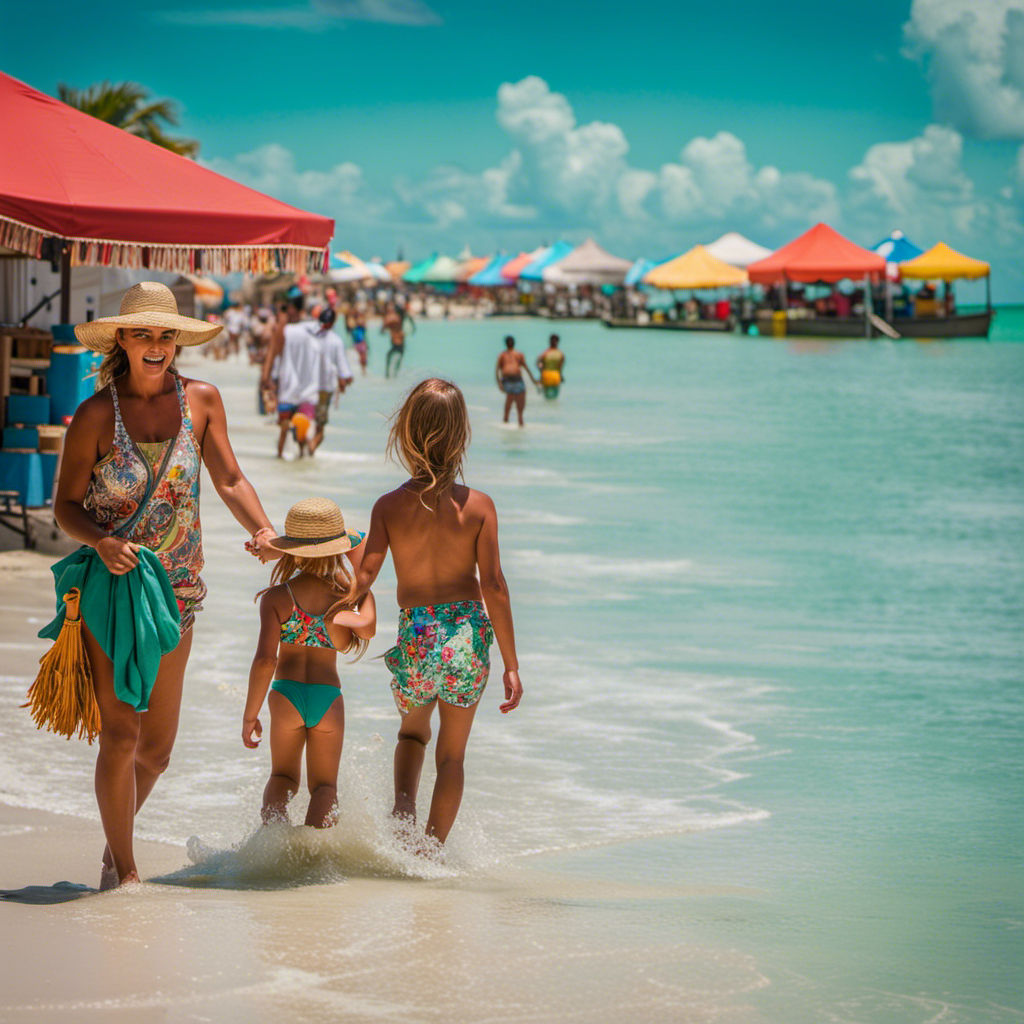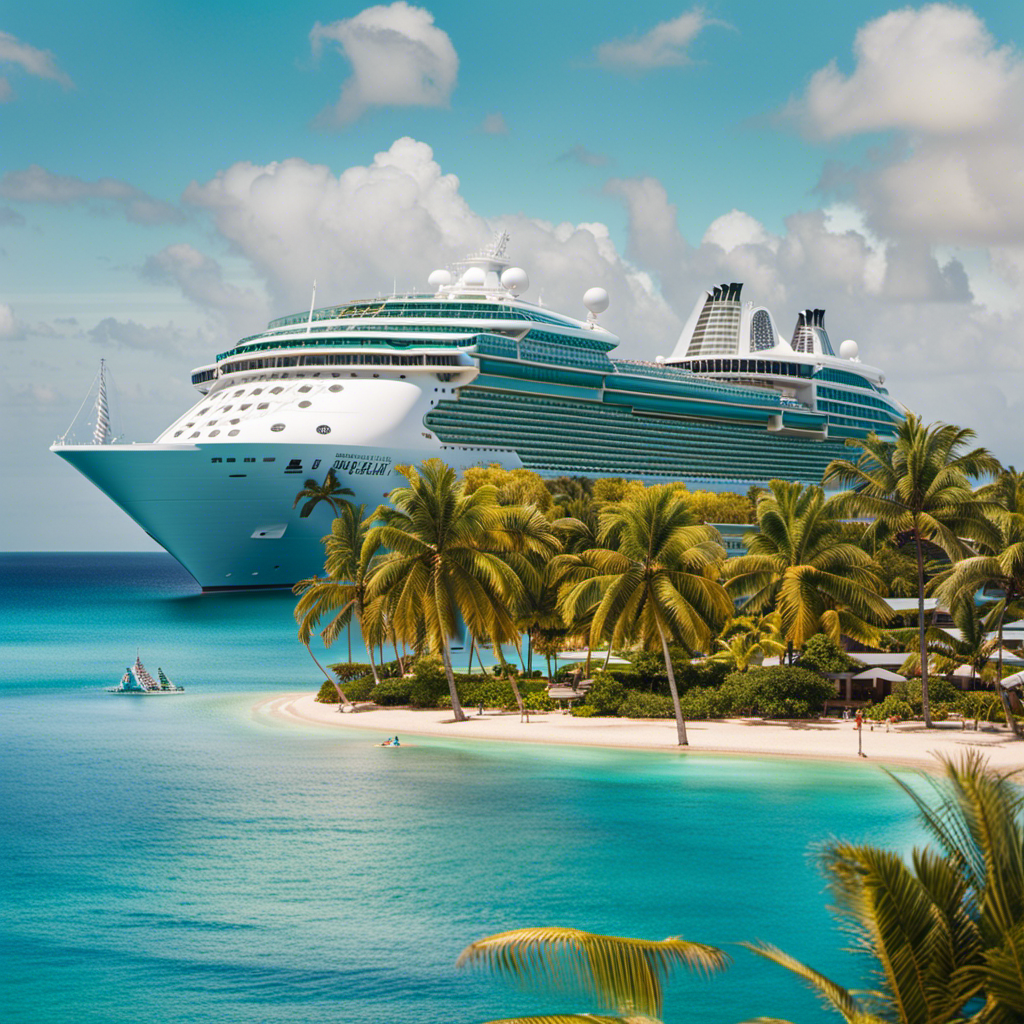I must recognize that the CDC’s recent revisions to the optional COVID-19 guidelines for cruise lines have caused considerable annoyance throughout the industry. These modifications involve new classifications for vessels according to their vaccination statuses and changes to the isolation rules for individuals identified as close contacts.
It used to be that quarantine lengths were based on a ship’s status alone, regardless of vaccines. But now, the CDC has shortened quarantine requirements for ships in the Vaccination Standard of Excellence category to just 5 days or daily testing for fully vaccinated folks.
The deadline for cruise lines to opt in is February 18, and so far, only one company has notified the CDC of their decision. Major cruise lines are still on the fence. They’re not happy with the CDC’s measures, arguing that their own protocols are already doing a great job at preventing COVID. They’re questioning why they need to meet additional requirements without any solid evidence to back it up.
It’s unclear what impact these last-minute updates will have on the cruise industry, as very few ships have made a decision about whether to join the program.
Key Takeaways
- CDC’s Voluntary COVID-19 Program for Cruise Ships has introduced significant changes for cruise lines, including new classifications based on vaccination status.
- The quarantine guidelines have been modified, with reduced quarantine lengths for ships in the Vaccination Standard of Excellence category and eased protocols for close contacts of vaccinated individuals.
- The deadline for cruise lines to decide whether to join the program is February 18, but so far, only one cruise company has notified the CDC of their intention to opt in.
- The cruise industry has expressed displeasure and confusion regarding the CDC’s measures, questioning the need for additional requirements and calling for empirical evidence to support them.
CDC’s Voluntary COVID-19 Program for Cruise Ships
I’m disappointed that the CDC’s last-minute updates to the voluntary COVID-19 program for cruise ships have sparked industry displeasure.
The CDC’s program, which requires cruise lines to decide whether to opt in by February 18, contains significant changes that have raised concerns within the cruise industry.
One of the major changes is the introduction of new ship classifications based on vaccination status. These classifications determine the rules on quarantine for close contacts. Previously, quarantine lengths were dependent on the ship’s status, regardless of vaccine status. However, the CDC has now updated the rules to offer eased protocols for close contacts on highly vaccinated ships.
Despite the CDC’s efforts, the cruise industry has expressed confusion and displeasure with these increased requirements. They argue that their own protocols have already provided effective COVID mitigation and question the need for additional measures without empirical evidence to support them.
As of now, only one cruise company has notified the CDC of their intention to opt in, and the industry as a whole seems hesitant to embrace the program.
New Classifications of Ships Based on Vaccination Status
The cruise industry is expressing frustration with the CDC’s new guidelines that introduce new classifications of ships based on vaccination status. This development has had a significant impact on the industry.
Here are some key points to consider:
-
Confusion: The industry is confused by the sudden introduction of these new classifications, which create market confusion and uncertainty.
-
Displeasure: Cruise lines argue that their existing protocols have been effective in mitigating COVID-19 risks, making these new requirements seem unnecessary.
-
Unworkable Measures: Industry representatives question the practicality and feasibility of implementing these complex and unwarranted measures.
-
Empirical Evidence: The industry calls for empirical evidence to support the CDC’s requirements, highlighting the need for transparency and data-driven decision-making.
Overall, the industry is cool to the increased requirements and the opt-in to the CDC’s program, as only a few ships have made their decision, and the deadline is fast approaching.
Changes in Quarantine Guidelines
Opting in to the CDC’s program requires cruise lines to follow the new quarantine guidelines, which have recently been updated.
The changes in quarantine guidelines are significant for the cruise industry. Previously, the length of quarantine depended on the ship’s status, not the vaccination status. For example, even if fully vaccinated, a person on a highly vaccinated ship had to quarantine for 10 days. However, the CDC has now reduced the quarantine period to 5 days for ships in the Vaccination Standard of Excellence category. The CDC has also updated the rules for close contacts, offering eased protocols such as a reduced quarantine period or daily testing for up-to-date vaccinated individuals.
Industry response to these increased requirements has been characterized by confusion and displeasure. The Cruise Lines International Association has expressed frustration with the CDC’s measures, arguing that their protocols have already provided effective COVID mitigation. The industry believes that the CDC’s guidelines create market confusion and may be unworkable. They question the need for additional complex and unwarranted measures and call for empirical evidence to support the CDC’s requirements.
It remains to be seen how these changes will impact the cruise industry, as major cruise lines have yet to provide their decision on joining the program.
Eased Protocols for Close Contacts
Having reviewed the recent changes, I understand that the eased protocols for close contacts offer reduced quarantine periods or daily testing options for up-to-date vaccinated individuals.
The CDC’s last-minute updates to the cruise program have ignited industry displeasure. The industry is confused and unhappy with the new guidelines. They argue that their existing protocols have effectively mitigated the spread of COVID-19. The industry also questions the need for additional complex and unwarranted measures. They call for empirical evidence to support the CDC’s requirements.
The CDC’s changes come just one day before the opt-in deadline, causing frustration among cruise lines. So far, only one cruise company has notified the CDC of its intention to opt in, and major cruise lines have yet to provide a decision. The industry seems cool to the increased requirements and opt-in to the program.
Opt-In Deadline and Cruise Lines’ Decision
After reviewing the recent changes, I understand that cruise lines are supposed to provide notice to the CDC on February 18 regarding their decision to opt in or not. This opt-in deadline is part of the CDC’s last-minute updates to the cruise program, which have ignited industry displeasure.
So far, only one cruise company has notified the CDC of their intention to opt in, while major cruise lines have yet to provide a decision. Currently, out of the 112 tracked ships, only 20 would be part of the voluntary program.
The cruise industry, represented by the Cruise Lines International Association, has expressed confusion and dissatisfaction with the CDC’s measures. They argue that their protocols have already been effective in mitigating COVID-19 and question the need for additional complex and unwarranted measures. The industry calls for empirical evidence to support the CDC’s requirements.
Limited Participation in the Voluntary Program
I’m aware that only a small number of ships would be part of the voluntary program, with just 20 out of 112 tracked ships currently planning to join.
Limited Participation: The CDC’s voluntary COVID-19 program for cruise ships has garnered limited participation, with only 20 out of 112 tracked ships opting to join.
Industry Dissatisfaction: The cruise industry has expressed dissatisfaction with the CDC’s new guidelines, arguing that their existing protocols have been effective in mitigating COVID-19 risks.
Confusion and Unworkability: Cruise Lines International Association has voiced confusion and displeasure, stating that the CDC’s measures create market confusion and may be unworkable.
Need for Evidence: The industry has called for empirical evidence to support the CDC’s requirements, questioning the need for additional complex and unwarranted measures.
Despite the deadline for cruise lines to decide to join the program approaching, major cruise lines have yet to provide a decision to the CDC. This limited participation and industry dissatisfaction highlight the challenges faced by the CDC’s last-minute updates to the cruise program.
Industry’s Confusion and Displeasure With Cdc’s Measures
I find it perplexing and frustrating that the measures implemented by the CDC have caused confusion and dissatisfaction within the cruise industry.
The industry’s objections stem from the CDC’s measures’ confusion and lack of clarity. Cruise Lines International Association has expressed its displeasure with the guidelines, arguing that their protocols have already provided significant COVID mitigation.
The industry claims that the CDC’s guidelines create market confusion and may be unworkable. They question the need for additional complex and unwarranted measures and call for empirical evidence to support the CDC’s requirements.
The timing of the CDC’s last-minute updates, just one day before the opt-in deadline, has further added to the industry’s frustration. As of now, only one cruise company has notified the CDC of its intention to opt in, while major cruise lines have yet to provide a decision.
The industry seems cool to the increased requirements and opt-in to the program.
Industry’s Mitigation Protocols Questioned
The effectiveness of the industry’s mitigation protocols is being questioned amidst the confusion surrounding the CDC’s measures. The cruise industry has expressed concerns regarding the new guidelines imposed by the CDC. Here are the key points to consider:
-
Industry’s COVID protocols: The cruise industry argues that their protocols have already provided significant COVID mitigation. They have implemented rigorous health and safety measures to protect passengers and crew.
-
Cruise industry’s concerns: The industry is displeased with the CDC’s last-minute updates and increased requirements. They claim that the guidelines create market confusion and may be unworkable. The industry questions the need for additional complex and unwarranted measures.
-
Empirical evidence: The industry calls for empirical evidence to support the CDC’s requirements. They believe that their existing protocols have been effective in preventing the spread of COVID-19 onboard cruise ships.
-
Impact on the industry: The industry’s mitigation protocols are now being scrutinized due to the CDC’s measures. With the opt-in deadline approaching, cruise lines are carefully considering their decision to join the CDC’s program, as it requires compliance with all the new requirements.
Need for Empirical Evidence to Support CDC’s Requirements
As a concerned industry member, I question the need for additional complex and unwarranted measures without empirical evidence to support the CDC’s requirements. It is important to base decisions and guidelines on scientific data and research. Without empirical evidence, it becomes difficult to justify the implementation of new rules and regulations. The cruise industry has already implemented protocols that have shown to be effective in mitigating the spread of COVID-19. The CDC’s guidelines should be backed by solid evidence to ensure that they are necessary and beneficial. It is crucial to strike a balance between public health and the viability of the cruise industry. By relying on empirical evidence, we can make informed decisions that prioritize both safety and the industry’s ability to operate successfully.
| Empirical Evidence | CDC’s Requirements |
|---|---|
Impact of Last-Minute Updates on the Cruise Industry
The last-minute updates made by the CDC to their voluntary COVID-19 program for cruise ships have ignited displeasure within the industry. As a result, the cruise industry is now facing potential financial repercussions.
The impact on cruise bookings is a major concern, as the industry is already struggling due to the ongoing pandemic. The new guidelines, which include changes in quarantine protocols and ship classifications based on vaccination status, have created confusion and uncertainty among potential cruise passengers. This lack of clarity and the increased requirements may deter people from booking cruises, leading to a decline in revenue for cruise lines.
Additionally, the industry’s displeasure with the CDC’s measures may result in a strained relationship between the two parties, further affecting the financial stability of the cruise industry.
Frequently Asked Questions
What Is the Deadline for Cruise Lines to Decide Whether to Join Cdc’s Voluntary COVID-19 Program for Cruise Ships?
The deadline for cruise lines to decide on joining CDC’s voluntary COVID-19 program for cruise ships is February 18. The program includes new classifications based on vaccination status for ships and updated quarantine guidelines.
How Are Ships Classified Based on Vaccination Status?
Ships are classified based on vaccination status, impacting the cruise industry. The CDC’s program introduces new ship classifications and quarantine rules for close contacts. The industry expresses displeasure, questioning the necessity and complexity of the measures.
What Were the Previous Quarantine Guidelines for Cruise Ships?
The previous quarantine guidelines for cruise ships varied based on the ship’s status, not vaccine status. Even fully vaccinated individuals on highly vaccinated ships had to quarantine for 10 days.
What Are the New Quarantine Guidelines for Close Contacts on Highly Vaccinated Ships?
The new quarantine protocols for close contacts on highly vaccinated ships include a reduced quarantine period of 5 days or daily testing for up-to-date vaccinated individuals. Vaccination requirements are now considered in determining quarantine lengths.
How Many Cruise Ships Have Notified the CDC of Their Intention to Opt in to the Program so Far?
As of now, only one cruise company has notified the CDC of their intention to opt in to the program. Major cruise lines have yet to provide a decision.










